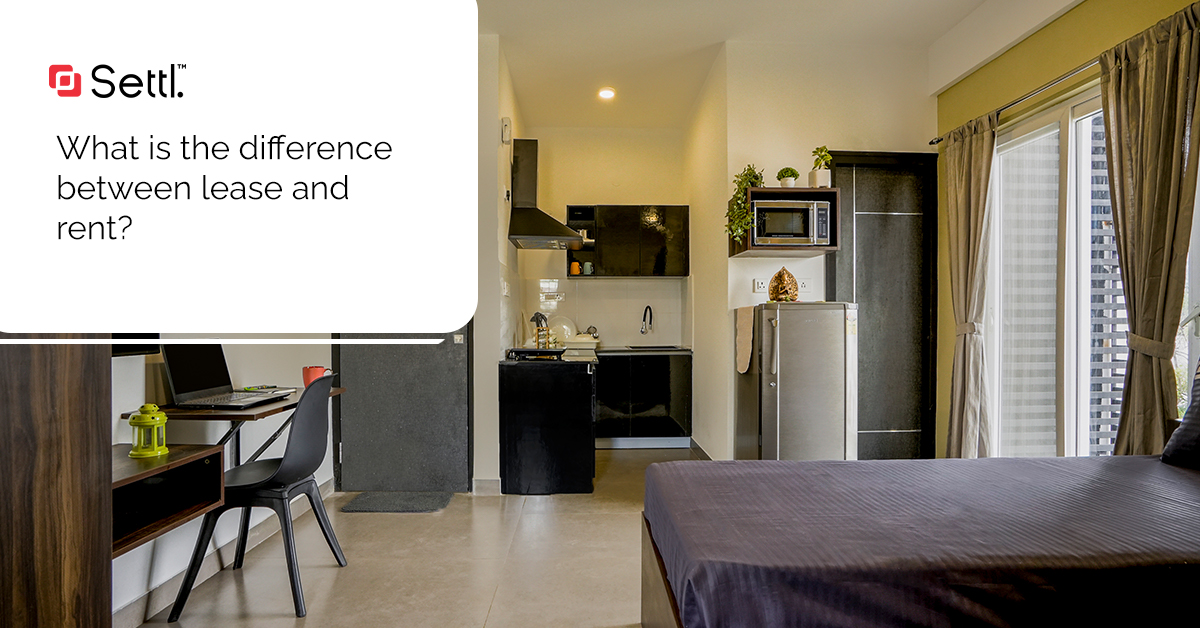Navigating the real estate world often brings to the forefront terms that seem interchangeable but bear distinct definitions and implications. Two such terms, ‘lease’ and ‘rent’, are frequently mistaken for one another. This article by The Settl aims to provide a comprehensive and formal breakdown of the differences between them.
1. Fundamental Distinctions: Lease vs. Rent: Grasping the Core Concepts
The difference between lease and rent lies primarily in duration and commitment:
- Lease: This refers to a contract wherein the lessee (tenant) agrees to occupy a property for a predefined, longer period, typically 6 months to a year or more.
- Rent: This term usually indicates a shorter-term arrangement, often month-to-month, where the tenant can leave at the end of any given month without penalty.
2. Key Dissimilarities Between Lease and Rental Agreements: Details in the Fine Print
Elucidating the contrast between lease and rent demands a deeper dive into the terms and conditions associated with each:
- Stability vs. Flexibility: A lease provides tenants stability with a fixed term and rent amount. Rent, on the other hand, affords more flexibility, allowing for more transient living arrangements.
- Financial Commitment: With a lease, tenants typically commit to paying the landlord a specified sum for the entirety of the lease period. Rental agreements might be subject to price fluctuations based on market conditions.
3. Implications for Tenants: Rights and Responsibilities: Understanding One’s Role and Liabilities
Lease and rent arrangements come with varying rights and responsibilities:
- Lease Agreement: Here, tenants have a guarantee of habitation for the contract’s full duration, ensuring no unexpected evictions. However, breaking a lease often incurs penalties.
- Rental Contract: Monthly tenants might have the freedom to move without long-term commitments, but they might also face eviction on relatively short notice, depending on the agreement.
4. Making an Informed Decision: Evaluating Your Housing Needs: Aligning Choices with Individual Requirements
When assessing whether a lease agreement or a rental contract is better suited to one’s needs, several factors come into play:
- Duration of Stay: If you’re planning to stay in a place for an extended period, a lease might be more beneficial. For short-term or uncertain durations, renting remains a viable option.
- Financial Planning: Consistent expenses can be better managed with lease agreements, where costs remain static. Those willing to adjust to potential rent fluctuations might opt for rental agreements.
In conclusion, the distinctions between lease and rent are paramount for prospective tenants. By understanding the nuances of lease and rental agreements, individuals can make informed decisions that best suit their personal and financial circumstances.







No Comments